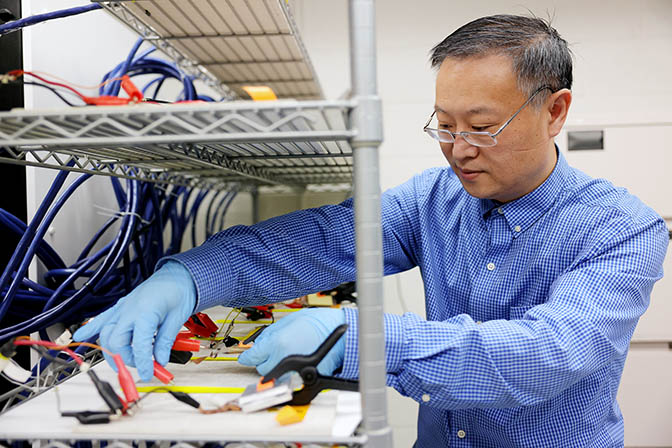
Future of electric vehicles
U-M takes convergent approach to ensure the EV revolution is accessible and equitable for all.
With automakers committing to all-electric vehicle lineups and 52% of vehicle sales anticipated to be all-electric by 2030, there is a renewed national investment to make the switch to electric vehicles—and Michigan Engineers are working to ensure the road traveled leads to accessible, safe, sustainable and equitable solutions for all.

As a hub for convergent research, Michigan Engineering provides an environment where all of the players—automakers, legislators, regulators, academics and researchers—interact to tackle not only the technology, but also how EVs integrate with our society to help close critical gaps.
“We’re undergoing a redefinition of personal mobility in a way we haven’t seen in a century,” said longtime auto industry executive, now EV Center Director, Alan Taub. “It requires changes to the vehicles, the infrastructure, consumer behavior, policy and more. We need academia, industry and government to work together to enable a smooth transition.”

Building upon both established and upcoming partnerships, Michigan Engineering is spearheading the $130 million, state-funded Electric Vehicle Center, a first of its kind in the nation. The center will allow the state to leverage the existing resources at U-M and throughout the state to focus on the future of electric vehicle technology and workforce development. This includes expertise in the Michigan Battery Lab, Mcity, the U-M Transportation Research Institute and top-tier academic departments, providing broad expertise in EVs, AVs, and connected vehicles.
Researchers are partnering with the U.S. Department of Energy to develop new design tools and establish best practices for material producers and carmakers to take recycling into account from start to finish in production. Teams are also hoping to alleviate disproportionate pressure placed on countries like the Democratic Republic of Congo and Philippines for precious battery metals.
